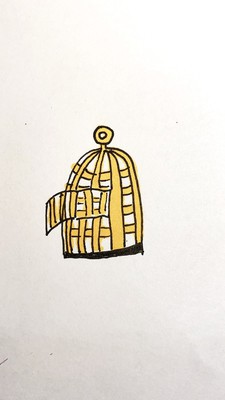„ Since we are able to think, we have built ourselves a cage – a civilisation. And now we have to think, since we are stuck in that cage. “(Birdy W Wharton) – To what extent is society influenced by the development of civilisation?
Barbara Marten - 28.09.2019 @ 11:10
The Development of civilization
by Magdalena Dessl, BG-BRG Kufstein/Austria
What will the future look like?
People have asked this question at all times. 100 years ago, they imagined flying cars and revolutionary technologies. In today’s science-fiction films these things only come with a society that despises individuality and emotions. But how does the development of civilization actually influence our society?
In “A Brave New World”, Aldous Huxley imagined a world in complete order, everyone did what they were born to do, more precisely, what they were forced through different manipulations to do. The civilisation was at a point were humans could be produced in a laboratory and could be duplicated as often as there was a need for them to do so. Everyone who was needed for a lower job got a specific kind of drug injected as an embryo so that the brain didn’t develop completely. The energy saved thereby could be used by the body to develop faster. While growing up, the people in the society were exposed to planned childhood traumas and thus were turned into obedient workers who did blindly what they were asked to do. It was a society where relationship was a means for satisfaction, and the natural way of childbearing was frowned upon.
But will our future look similar?
Basically, we are at a technological level where we could create babies artificially, or at least, where we could simulate the circumstances which a foetus experiences in a womb. And this would have evolutional advantages. The only reason why our brain has stopped growing and is now at its ultimate capacity is because a child with a bigger brain could not be biologically born, since there isn’t enough space in the womb.
Therefore, a theory states that if children were brought up in a space where size didn’t matter, the brain could start growing again. However, is this evolutional progress worth a try? And is there a possibility that we lose our family bonds through it, like in Aldous Huxley’s ‘Brave New World’?
A change in civilisation that we can see nowadays is the usage of smartphones whereas 50 years ago nobody even thought about such an item. Many people expressed their worries that those devices which should bring freedom and simplify our lives are the ones which trap us the most. The average screen time in Austria is around three hours per day, which would mean that we look at our phone nearly one whole day per week. Are our phones the most dangerous threats to society?
of smartphones whereas 50 years ago nobody even thought about such an item. Many people expressed their worries that those devices which should bring freedom and simplify our lives are the ones which trap us the most. The average screen time in Austria is around three hours per day, which would mean that we look at our phone nearly one whole day per week. Are our phones the most dangerous threats to society?
As many disadvantages our phones may have, they also have a lot of perks. Communication and new unlimited information we get access to are only some of them. We encounter a wider spectrum of people who help us, for example, develop our intercultural competence.
In conclusion, the development of civilisation brings along advantages and disadvantages, but it is our responsibility as a society not to let them change our fundamental values.
Magdalena Dessl - 13.11.2019 @ 22:00
Great text Magdalena.
Interesting point you brought up with today's cell phones and how the cell phones can/have changed us. Of course, they have changed us as a society but the question is if it is a change in the right direction or the opposite. As you say, it is our responsibility as individuals to not let them change our fundamental values and instead use our advance in technology for the greater good.
Jakob Gustafsson - 23.01.2020 @ 11:37